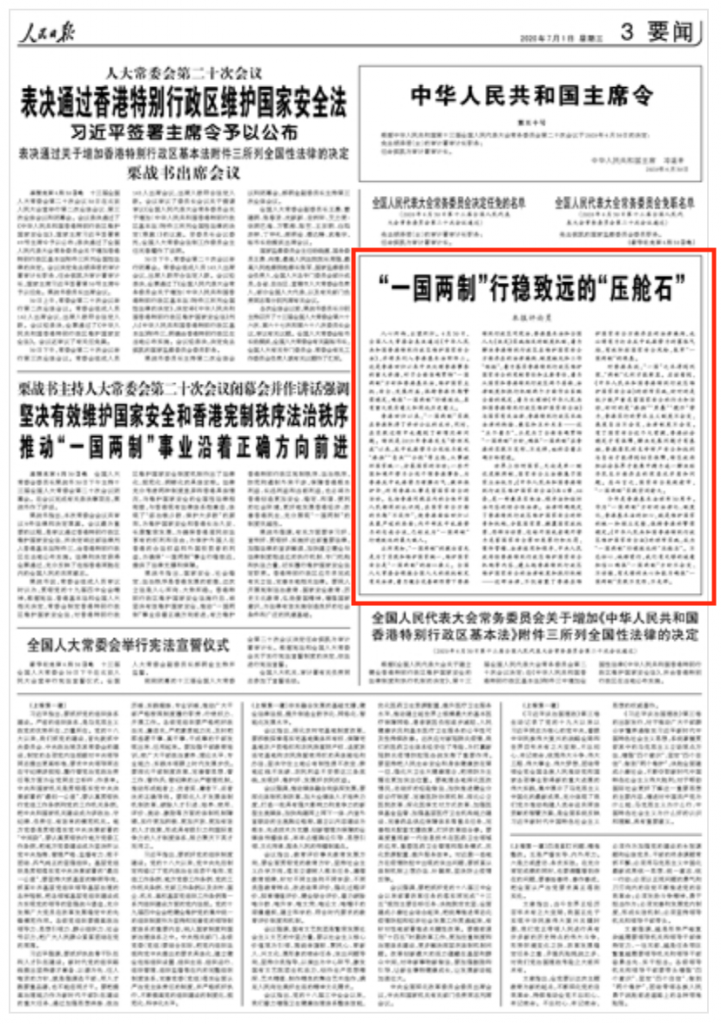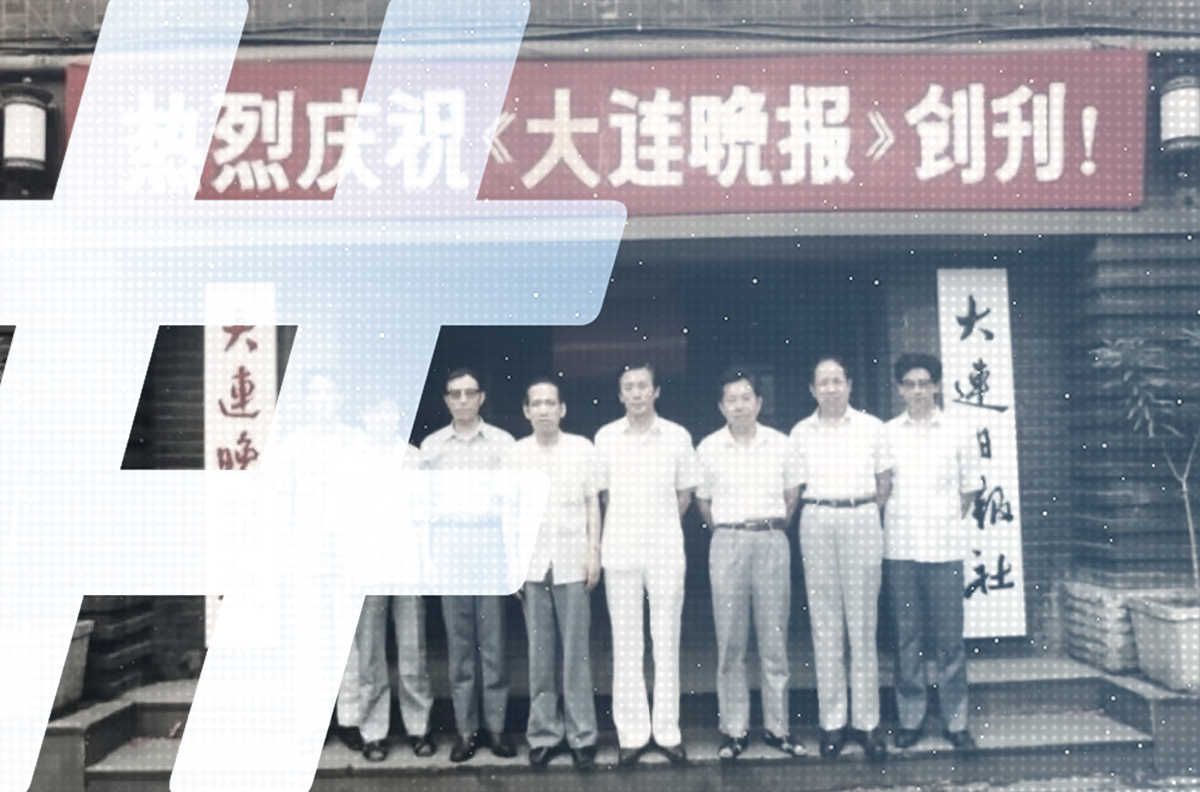Headlines and Hashtags
Two Systems, One "Original Intention"
“What people wish for, and what everyone hopes.” It is with this cryptic line that today’s official commentary in the People’s Daily on Hong Kong’s new national security law begins.
人心所向,众望所归
rén xīn suǒ xiàng, zhòng wàng suǒ guī
What does this mean? It means that whatever the people of Hong Kong may feel today about this dispiriting turn of events, a vague and expansive law that will likely have a chilling effect on the basic rights hitherto enjoyed in the territory, the Chinese Communist Party claims this as a victory for all Chinese, including “our brethren in Hong Kong.”
The page-three commentary, attributed to “a commentator from this paper,” or benbao pinglunyuan (本报评论员), which marks it as executed by top staff at the paper but representing views at the most senior levels of the Party, suggests that the implementation of the national security law is actually a reflection of the “original intention” of the Basic Law (香港基本法的初心), which was to “protect national unity and territorial integrity, and preserve the prosperity and stability of Hong Kong.”

As such, the new law is the most appropriate celebration of this year’s 30th anniversary of the Basic Law – a return to “original intentions.”
“Not forgetting [our] original intentions,” or buwang chuxin (不忘初心), is of course a typical Xi Jinping catchphrase referring to the need for the Chinese Communist Party to remember both its original goals (such as the establishment of “socialism with Chinese characteristics”) and its correct political orientations (meaning the unshakeable rule of the CCP). Just today, the People’s Daily promoted on its front page the publication yesterday in the journal Seeking Truth of a January speech by Xi Jinping on precisely this issue, of “original intentions.”
Seen in this distorted light, the new Law of the People’s Republic of China on Safeguarding National Security in the Hong Special Administrative Region is simply a return to normalcy from the “chaos” that has threatened the “one country, two systems” formula. It puts “one country” back into “one country, two systems,” or so the argument goes:
For Hong Kong, only when ‘one country’ is consolidated can the benefits of ‘two systems’ be put into play.
On the question of “two systems,” the commentary again seeks to offer reassurances, that the law does not mark a fundamental change to Hong Kong’s system and values but simply accounts for a few bad apples:
It should be seen that the implementation of the Law of the People’s Republic of China on Safeguarding National Security in the Hong Special Administrative Region targets an extremely small minority of actions and activities that seriously damage national security, [that it] targets the forces of ‘Hong Kong independence,’ ‘Black Violence’ and ‘Burning Together’. The capitalist system in effect in Hong Kong will not change, the high level of autonomy will not change, the legal system will not change.
Those reassurances are difficult to square with the language of the new law. When everything comes out in the wash, how many of the freedoms now enjoyed in Hong Kong – beyond the celebration of its capitalism – will fade or disappear on the grounds that they “seriously damage national security.” The law, for example, specifies as a crime “inciting hatred of the central government.” What does that mean?
Commenting on the law, Czech scholar Martin Hala has rightly observed that the term “national security” is a mistranslation of guojia anquan (国家安全) in the Chinese case. The operative term here might more accurately be translated “state security.” Meaning that the broad purpose of this law is not to ensure the security of the Chinese population or of the “nation,” but rather to safeguard the party-state.
To what extent, then, will this law be used to move against any and all forms of criticism of the party-state in China – in the media, academia, and so on? In the same vein, what does today’s commentary mean when it talks about “anti-China forces sowing chaos in Hong Kong” (反中乱港势力)?
Since Hong Kong’s return, the practice of “one country, two systems” has achieved world-renowned success in Hong Kong. At the same time, it has encountered new situations and problems in the course of its exercise. Particularly in 2019 with the “amendment storm” (修例风波) occurring in Hong Kong, anti-China forces sowing chaos in Hong Kong (反中乱港势力) have blatantly advocated “Hong Kong independence,” “self-determination” and “referendums” and so on, engaging in activities that damage national unity and divide the country; certain foreign and outside forces (外国和境外势力) have blatantly interfered with Hong Kong affairs, bracing and encouraging anti-China forces sowing chaos in Hong Kong, providing protection, and using Hong Kong to engage in activities that harm national security. The people of China, including our brethren in Hong Kong, profoundly recognize that a longstanding “lack of defences” (不设防) on national security have caused Hong Kong to face its most serious situation since its return; the internal and external collusion and convergence of anti-China forces sowing chaos in Hong Kong has already become the greatest enemy to the continuation of “one country, two systems.”
Is it now a crime to be “anti-China” in Hong Kong, however broadly Chinese authorities wish to define this concept? What does that mean?
At the moment, all we have are questions.
[Image of Hong Kong skyline by Fabio Achilli available at Flickr.com under CC license.]




















